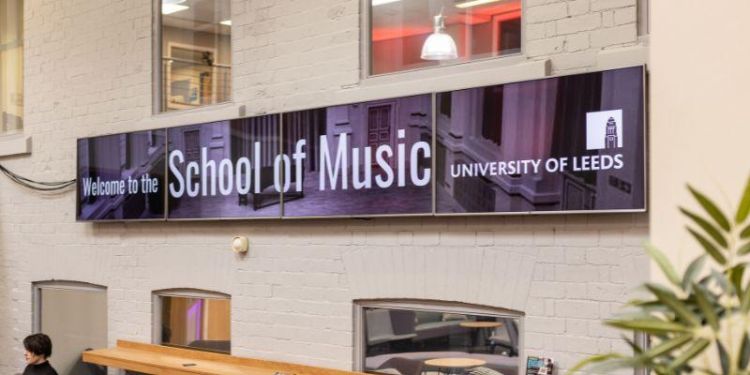Idiom, genre, and whiteness in Dutch improvised music and postcolonial jazz

- Date: Wednesday 18 February 2026, 16:00 – 17:00
- Location: University of Leeds
- Cost: Free
Part of the Music Research Seminar Series 2025-26
Speaker: Floris Schuiling – Utrecht University
Location: School of Music Lecture Theatre 2
- This will be a hybrid event. The guest speaker will be present with us in the School of Music, and colleagues and other guests are encouraged to join us there. But if you are unable to do so then please consider joining us via Teams.
- No booking is required. Those wishing to attend online should contact series convenor Dr Ellis Jones (e.n.jones@leeds.ac.uk).
This talk presents results from a project that situates the emergence of free improvisation in the Netherlands in the context of the country’s post-war decolonisation. It builds on George Lewis’ (2004) discussion of whiteness in European improvised music and the dismissal of jazz in favour of a more general, and implicitly white, category of free improvisation—what Derek Bailey (1992) has called ‘non-idiomatic music’. I describe how Dutch musicians and critics distinguished free improvisation from American free jazz around 1970, especially from the more spiritually oriented and pan-Africanist music of that time. I show how European improvisers were described as true innovators while African-American musicians supposedly only reproduced existing musical forms, and that such discourse turned even more strongly against rock-jazz fusion later that decade. I then turn to the music of musicians who migrated to the Netherlands from former Dutch colonies during this period, such as Indo-Dutch jazz musicians in the 1950s, Surinamese kaseko-jazz musicians in the 1970s, and Maluku improvisers in the 1990s. Describing how these postcolonial migrant musicians in the Netherlands have negotiated the relation between idiom and freedom, I suggest a revised conception of ‘idiom’ that considers it in terms of differentiation rather than convention.
Floris Schuiling is assistant professor at Utrecht University. Much of his previous work addresses questions of improvisation, notation, technology, and performance, their changing roles in music since the mid-twentieth century, and their conceptualisation in the history of music studies. He currently leads an ERC-funded research project into Improvised Music and Decolonisation (IMPRODECO), where he investigates the role of whiteness in Dutch free improvisation.

